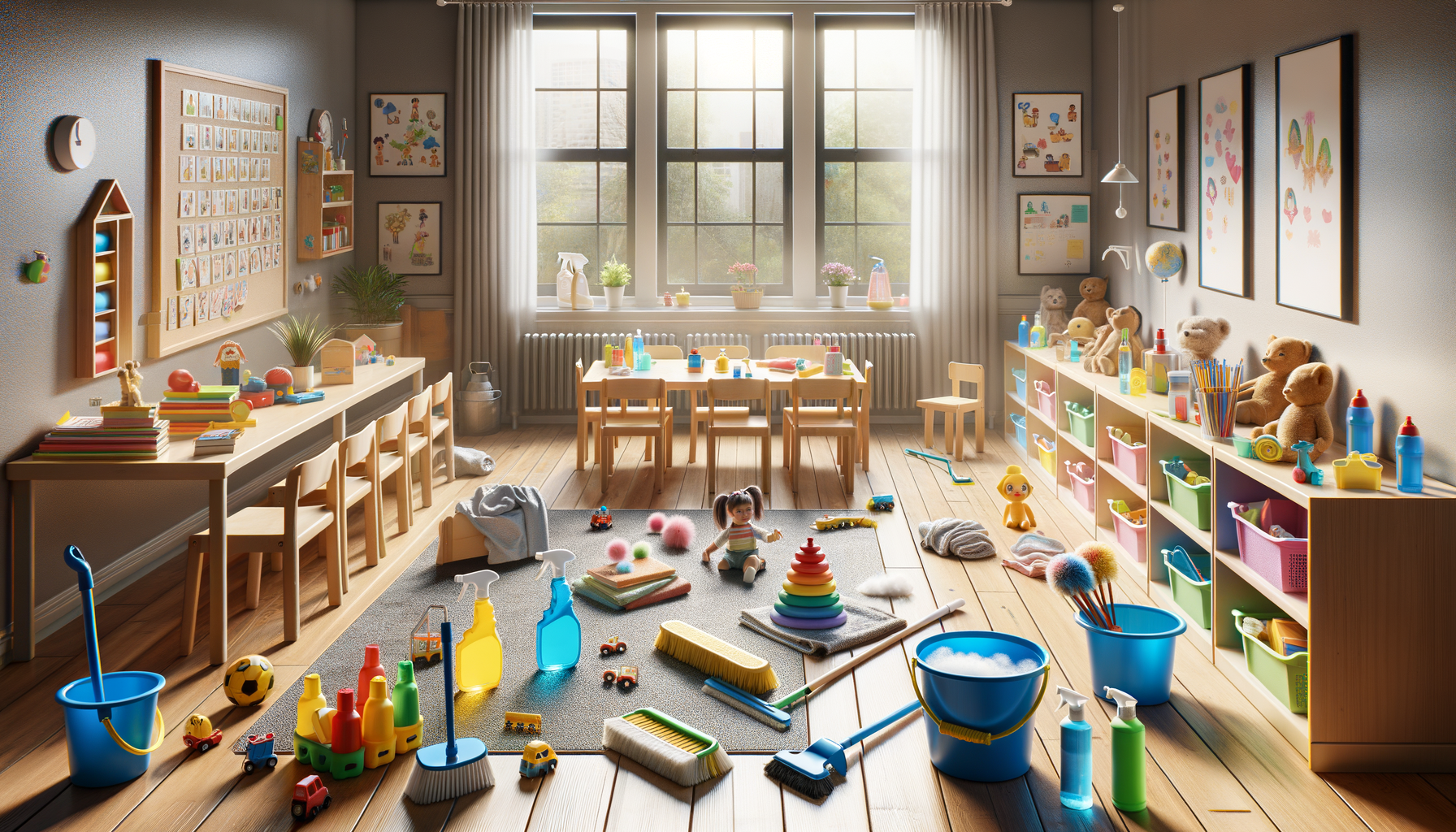The Increasing Importance of Cleanliness in Kindergartens
In today’s world, the importance of maintaining a clean and hygienic environment in kindergartens cannot be overstated. With young children being more susceptible to infections and illnesses, ensuring a germ-free environment is crucial. Studies have shown that a clean learning environment not only reduces the spread of diseases but also enhances the overall learning experience. This has led to kindergartens prioritizing cleanliness more than ever before, resulting in an increased demand for professional cleaning services.
Parents are understandably concerned about the health and safety of their children, and educational institutions are responding by investing in superior cleaning practices. The COVID-19 pandemic has further emphasized the need for rigorous cleaning protocols, making it a top priority for kindergartens worldwide. As a result, the role of cleaners has become indispensable in maintaining the hygiene standards expected by parents and authorities alike.
Role and Responsibilities of Kindergarten Cleaners
Kindergarten cleaners play a vital role in ensuring that the environment remains safe and conducive to learning. Their responsibilities extend beyond basic cleaning tasks, requiring a meticulous approach to hygiene and sanitation. Typical duties include:
- Regular disinfection of surfaces such as tables, chairs, and play equipment.
- Cleaning and sanitizing restrooms to prevent the spread of germs.
- Maintaining cleanliness in common areas, including hallways and entryways.
- Proper disposal of waste and ensuring recycling protocols are followed.
- Monitoring and replenishing cleaning supplies as needed.
These tasks require a keen eye for detail and a commitment to maintaining high standards of cleanliness. Furthermore, cleaners must stay updated with the latest cleaning techniques and products to ensure efficacy and safety.
Training and Skills Required for Kindergarten Cleaners
To meet the demands of this critical role, kindergarten cleaners must possess specific skills and undergo appropriate training. While a formal education may not be necessary, training programs focusing on sanitation, safety, and the use of cleaning equipment are essential. These programs equip cleaners with the knowledge to handle various cleaning agents safely and effectively.
Skills that are particularly valuable in this profession include:
- Attention to detail: Ensuring no area is overlooked during cleaning.
- Time management: Completing tasks efficiently within the allotted time.
- Communication: Coordinating with staff and understanding the specific needs of the kindergarten.
- Physical stamina: The job often requires long hours of standing and physical activity.
With the right training and skill set, kindergarten cleaners can significantly contribute to the health and safety of young children.
The Impact of Cleanliness on Child Development
A clean environment is not just about physical health; it also plays a crucial role in the cognitive and emotional development of children. A tidy and organized space promotes a sense of security and well-being, which is essential for young learners. Studies have suggested that children in clean environments exhibit better concentration, reduced stress levels, and increased productivity.
Moreover, teaching children about cleanliness and hygiene from a young age instills lifelong habits that contribute to their overall development. When kindergartens prioritize cleanliness, they are not only protecting children from illnesses but also fostering an environment that supports their growth and learning.
Future Trends in Kindergarten Cleaning Services
As the demand for kindergarten cleaners continues to rise, the industry is witnessing several emerging trends. The integration of technology in cleaning processes is becoming increasingly common, with automated cleaning devices and eco-friendly products gaining popularity. These innovations aim to enhance efficiency and reduce the environmental impact of cleaning activities.
Additionally, there is a growing emphasis on sustainable cleaning practices. Kindergartens are opting for green cleaning solutions that are safe for children and the environment. This shift towards sustainability reflects a broader societal trend towards environmental responsibility.
In conclusion, the role of kindergarten cleaners is more critical than ever. As educational institutions continue to prioritize cleanliness, the demand for skilled and trained cleaners is set to grow, paving the way for a cleaner, safer future for young learners.




Leave a Reply